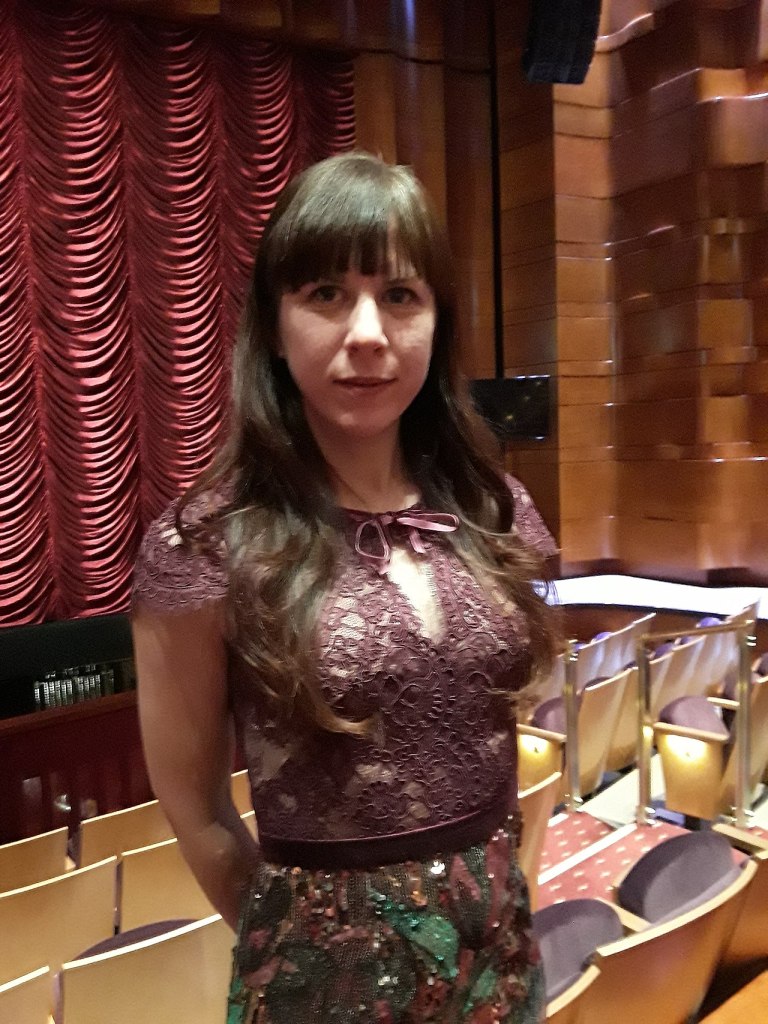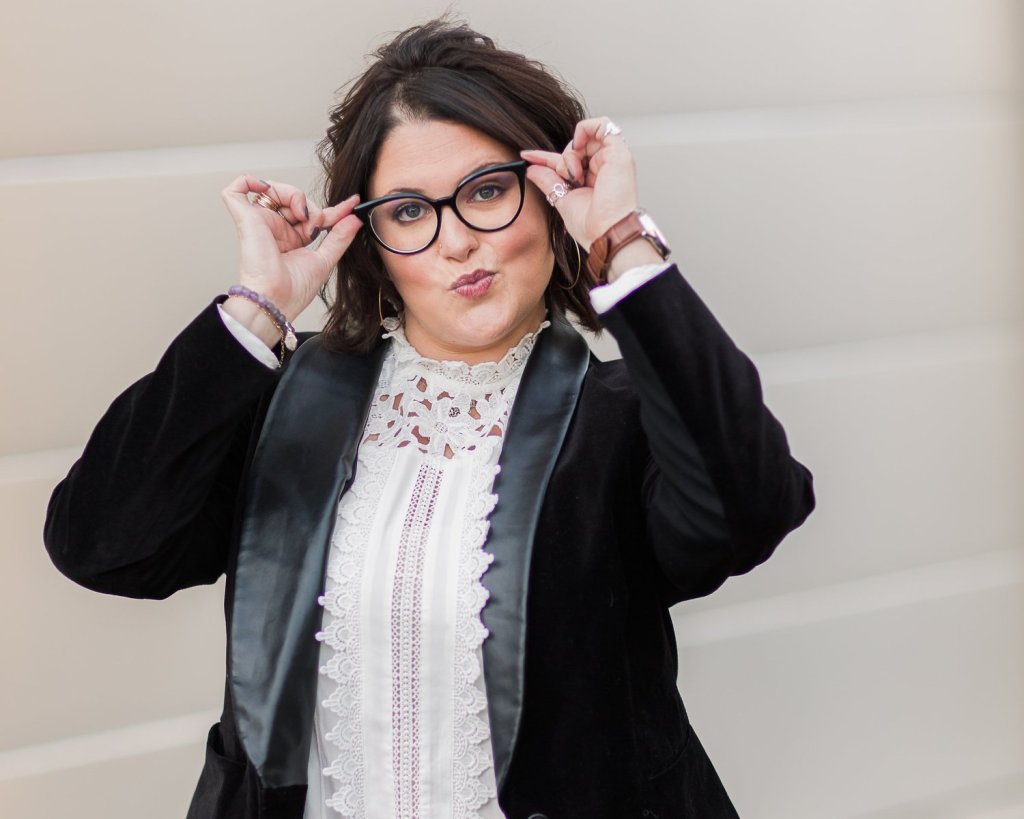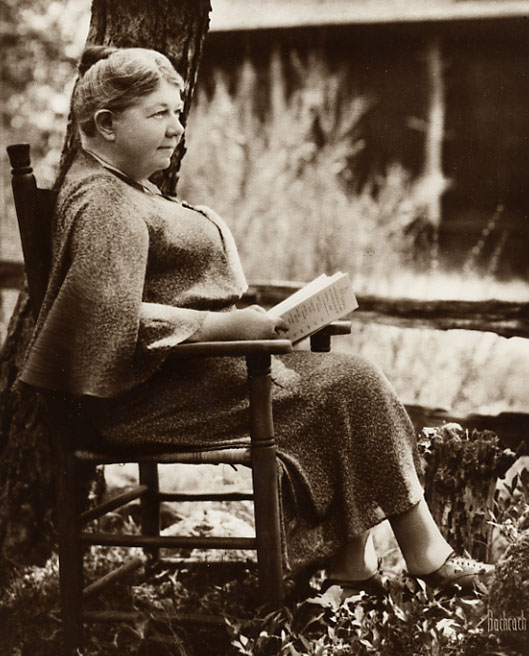Two short, supernatural operas by Amy Beach and Missy Mazzoli
By Peter Alexander April 23 at 6:30 p.m.
The CU Eklund Opera Program offers American history this weekend, seen through a surreal and supernatural lens.
Two striking operas by American women, both based on important moments in history, form a double bill that will be performed Thursday through Sunday at the Music Theatre in the Imig Music Building (April 25–28; details below). Presented together under the title “American Stories by American Women,” they are Cabildo by Amy Beach (1867–1944) and Proving Up by the living composer Missy Mazzoli. In addition to their historical basis, both operas are ghost stories, but the similarities end there.
Cabildo is located in New Orleans during the War of 1812 and features the pirate Pierre Lafitte (brother of Jean) and his true love, Lady Valerie, both of whom appear in a dream. In a totally different vein, Proving Up takes place on the harsh Nebraska frontier shortly after the homestead act of 1862, where the fictional Zegner family is struggling to survive while haunted by their dead daughters.
The operas will be directed by guest director Sara E. Widzer, a member of the faculty at the Lee Strasberg Theatre and Film Institute and intimacy director and consent consultant for Los Angeles Opera. She has directed opera throughout the United States as well as for companies in Asia. CU faculty member Nicholas Carthy will conduct.
The program originated when Carthy discovered that Amy Beach—a composer that he admires—had written an opera. It was only in manuscript, but he eventually got a copy. A printed edition has now been published, which Carthy is editing based on the manuscript.
“Beach always wanted to write an opera, but she was afraid of it never being performed because (operatic) forces are too big,” Carthy says. “So she wrote a deliberately small opera, seven people (in the orchestra). And it still didn’t get performed.”
The first performance took place in 1949, four years after Beach’s death. After another 40 years, it finally became known and was produced by Central City Opera in 2017.
“She was such a fascinating creature,” Carthy says of Beach. “She was an absolute feminist and a suffragette, and she was a member of the Boston Six (a group of composers around the turn of the 20th century), but her husband said she had to be a Boston matriarch and so she couldn’t teach, and she only performed twice a year.”
At that time she was known as “Mrs. H.H.A. Beach.” After her husband died in 1910, she began performing and publishing as “Amy Beach,” and had a substantial career as a pianist. Among her better known works are her Piano Concerto and her “Gaelic” Symphony.
The plot of Cabildo revolves around the pirate Pierre Lafitte and his participation in the Battle of New Orleans. Lafitte fought on the side of major general (later President) Andrew Jackson, for which Lafitte was pardoned. In the opera, Lafitte is mysteriously freed from prison, perhaps by Valerie’s ghost who appears in a dream, making their love the central theme of the story.
As Widzer explains, “at the end of the opera, Mary (the character who dreams of Lafitte and Valerie) says, ‘We don’t have America because of the War of 1812 and General Jackson. We have America because of the importance of love’.”
Switching from New Orleans to the Nebraska frontier of the 1860s, Mazzoli’s opera is the bleak tale of a family trying to establish a homestead under a law that required a sod house, five years of successful harvests and a glass window in order to claim their land. Based on a short story by Karen Russell, the opera dramatizes the struggles of the Zegner family to “prove up” and receive their land grant.

In the opera, the glass window is both a powerful symbol and a central dramatic element. In reality, the homestead act resulted in many people being displaced from the land. “Mazzoli wrote the opera in repose to the housing crisis of 2008,” Widzer explains.
“When you look at it through the sense of loss and uncertainty—it’s not just a housing crisis. It’s the crisis of 2008 because we lost so many arts organizations and so many people trying to figure out how to save their lives.”
“The music is absolutely fantastic,” Carthy says. “What the music really succeeds in doing is creating a past, a present and a future at the same time. The music has a timelessness, and it has episodes where it comes into focus.”
In her director’s role Widzer sees characters in the music beyond the singers. “We have weather,” she says. “Mazzoli composes weather, Mazzoli composes time. Mazzoli composes the supernatural, loss, excitement.”
While Cabildo has a set that refers to a specific place—New Orleans—the set and staging for Proving Up are abstract. “(The opera) travels through so many locations, to do a traditional set wouldn’t make sense. It blurs reality past, present, supernatural. And the family is so disconnected in their attempt to be whole it just pulls farther and farther apart.”
A common element that ties the production to the Nebraska frontier, where pioneers lived in sod houses, is dirt. “We’re dealing with dirt,” Widzer says. “Sometimes, it’s dust in our show, sometimes it’s the grave of the daughters, sometimes it’s on people’s faces.”
The obvious differences in the two operas give the student singers opportunities to explore different kinds of music and drama. “One of the most important things that we’re always doing, is that you see how the students develop, and how they take on incredibly difficult things,” Carthy says.
“They change the drama and the drama changes them—which is the way it should be.”
# # # # #
“American Stories by American Women”
CU College of Music Eklund Opera Program
Nicholas Carthy, music director, and Sara E. Widzer, guest stage director
- Amy Beach: Cabildo
- Missy Mazzoli: Proving Up
7:30 p.m. Thursday, April 25, Friday, April 26 and Saturday, April 27
2 p.m. Sunday, April 28
Music Theater, Imig Music Building


